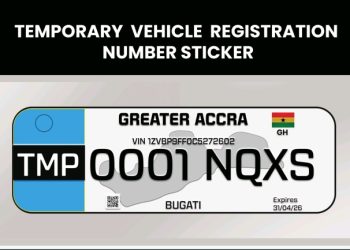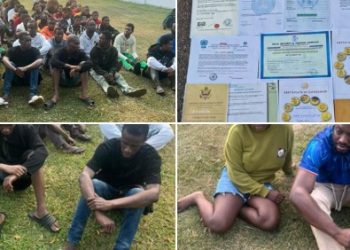The Ghana Gold Board (GoldBod) has approved 240 gold buying licenses under its new licensing framework, following the June 21, 2025 deadline set for all players in the industry to transition to the new regime.
The announcement, made by GoldBod Chief Executive Officer Sammy Gyamfi at a press conference in Accra, marks a significant milestone in the Board’s efforts to formalise and sanitise gold trading in Ghana, Africa’s largest gold producer after South Africa.
Over 500 applications received
Mr Gyamfi disclosed that over 530 applications were received across three licensing categories: more than 300 for Buyer Licence Tier One, approximately 200 for Tier Two, and around 30 for the Self-Financing Aggregator category.
“As of today, the management, with the approval of the Board, has greenlit 240 licences. Of these, 123 have been printed and issued to applicants who have completed the necessary payment and verification processes,” Gyamfi said.
He emphasised that the licence issuance process includes payment confirmation, licence printing, and audit verification, all in line with strict governance protocols under the Ghana Gold Board Act, 2025 (Act 1140).
No licence, no trade
The GoldBod CEO made it clear that only entities with valid GoldBod-issued licences will be allowed to operate legally in the gold buying and trading space going forward.
“This is a pivotal moment for Ghana’s gold industry. From now on, no person or company can operate in this sector without a valid licence issued by the GoldBod. We will clamp down on illegal gold buyers and aggregators to restore order and protect the integrity of our mining value chain,” he warned.
Enforcement, he noted, will be ramped up in collaboration with relevant state security and regulatory agencies to ensure full compliance with the law.
The Ghana Gold Board (GoldBod) was established by Act 1140 to serve as the sole statutory body responsible for regulating, licensing, and overseeing gold trading and aggregation in Ghana. Its mandate includes ensuring fair market practices, formalising the largely informal artisanal and small-scale gold sector, and promoting responsible gold sourcing.
The Board also plays a critical role in supporting the government’s gold-for-oil and gold-reserve diversification programmes, ensuring that Ghana derives maximum value from its mineral wealth.
Since its inception, GoldBod has introduced a tiered licensing structure, developed a traceability framework, and established mechanisms for compliance monitoring and digital tracking of gold flows.
Sector reform and transparency
The new licensing initiative is part of a broader effort to bring transparency, accountability, and revenue assurance to Ghana’s multi-billion-dollar gold industry, which has long been plagued by smuggling, illicit trading, and underreporting.
Industry players have been encouraged to regularise their status or risk being shut out of the formal trading system.
GoldBod has committed to building industry capacity, providing technical support to legitimate gold buyers, and working with local mining communities to ensure a fair, inclusive, and well-regulated gold market.











